Hajime - Judo Term Explained
Share
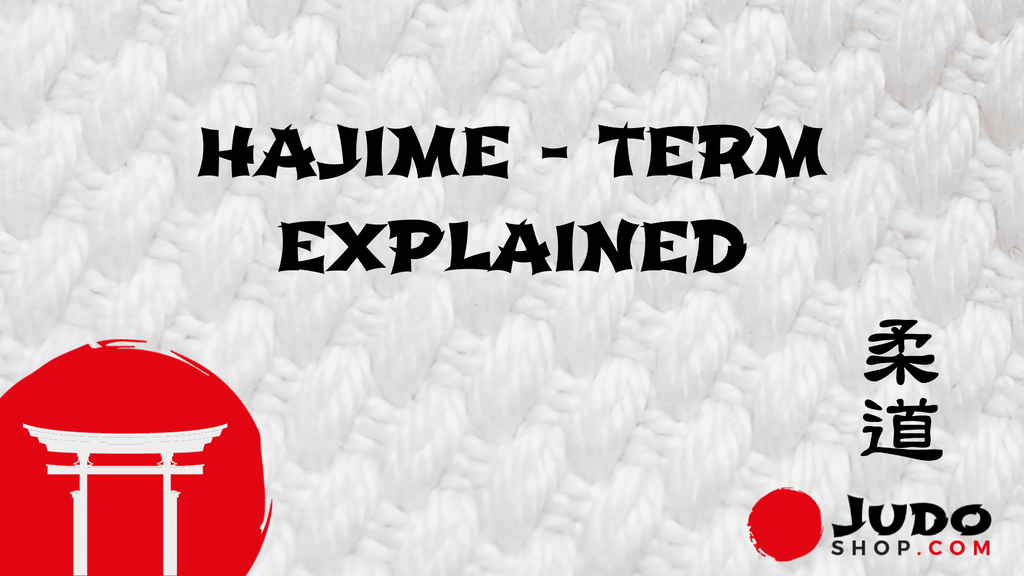
Ready to learn about Hajime in judo?
It's all about using throws, pins, and joint locks on the mat.
With the command of 'Hajime,' the match begins, and the quest for an ippon, the ultimate victory, commences.
Whether you're a curious beginner or a seasoned practitioner, Hajime Judo offers a dynamic blend of strategy, skill, and physical prowess.
So, get ready to immerse yourself in the world of Hajime Judo, where every match starts with the command to begin.
Key Takeaways
- "Hajime" is a Japanese word that means "beginning" or "start" in judo.
- It is used as a verbal command by the referee to signal the start of a match or contest.
- Competitors in judo matches begin their match when the referee announces "Hajime" and attempt to score points through various techniques.
- The objective of a judo match is to score an ippon (one full point), which results in an immediate victory. If neither competitor scores an ippon, the winner is determined by the highest score at the end of the match.
The Meaning of Hajime in Judo
In judo, the meaning of Hajime (はじめ) is the verbal command the referee uses to signal the beginning of a match or contest.
The word 'Hajime' has historical origins in judo, stemming from its Japanese roots.
It holds great significance in judo etiquette and discipline, as it marks the moment when competitors must demonstrate their skills and techniques.
However, there are common misconceptions about the meaning of 'Hajime' in judo.
Some people mistakenly believe that it signifies aggression or violence when it simply indicates the start of the match.
The psychology behind the referee's use of 'Hajime' to initiate a match is interesting.
It triggers the competitors, signaling them to shift their focus and enter a state of heightened alertness and concentration.
Additionally, cultural differences can influence the interpretation and use of 'Hajime' in various martial arts.
While it's primarily associated with judo, other disciplines may have their variations or equivalent commands to signal the start of a match.
Understanding the meaning and significance of 'Hajime' in judo helps to foster a deeper appreciation for the sport and its traditions.
The Role of Hajime in Judo Matches
During a judo match, you can actively respond to the command of 'Hajime' by the referee.
This command holds great significance in the match, setting the tone for the competition and initiating the action. Here are some key aspects of the role of Hajime in judo matches:
-
The importance of timing in judo: When the referee utters 'Hajime,' it's crucial to have a good sense of timing. Reacting quickly and effectively to this command can give you an advantage over your opponent.
-
The psychological impact of the hajime command: The sound of 'Hajime' can create a surge of adrenaline and anticipation, heightening the mental state of both competitors. It can also put pressure on the athletes, testing their ability to stay focused and composed.
-
Adapting tactics based on the opponent's reaction to hajime: The way your opponent responds to the command of 'Hajime' can reveal valuable information about their strategy and intentions. Observing their initial movements can help you adjust your tactics accordingly.
-
The role of Hajime in setting the pace of the match: The command of 'Hajime' establishes the tempo of the match. It's an opportunity for you to dictate the speed and intensity of the bout, taking control of the rhythm and flow.
Scoring Points in Judo: Techniques and Strategies
To maximize your chances of scoring points in judo, you must focus on executing techniques precisely and employing strategic positioning.
Grip fighting is essential in gaining the upper hand in judo matches.
By establishing a dominant grip on your opponent's uniform, you can control their movement and set up your own attacks.
Timing and distance are key factors for successful throws in judo.
You must have a keen sense of timing to execute your throws right when your opponent is off balance.
Maintaining the correct distance generates maximum power and leverage for your throws.
Groundwork techniques are crucial for maximizing scoring opportunities on the mat.
Once the match goes to the ground, you should be proficient in pins, joint locks, and chokes to secure points or even achieve an ippon victory.
Countering your opponent's attacks is also a defensive strategy in judo.
By anticipating their moves and reacting quickly, you can turn their attacks into opportunities for your throws or submissions.
Lastly, transitioning from standing to ground with fluidity is essential in judo techniques.
Moving between the two phases of the match seamlessly allows you to maintain control and capitalize on scoring chances.
Achieving Ippon: The Ultimate Victory in Judo
Your ultimate goal in judo is to achieve ippon, the highest level of victory.
To reach this level of success in your matches, there are several key aspects that you must focus on:
-
Mastering the art: perfecting ippon techniques. This involves learning and practicing a wide range of throws, pins, and joint locks that can lead to scoring ippon. You increase your chances of achieving the ultimate victory by honing your skills in these techniques.
-
Breaking the opponent's balance: a key to achieving ippon. One of the fundamental principles in judo is to disrupt your opponent's balance and control their posture. Doing so creates opportunities to execute your ippon techniques and score decisive points.
-
The importance of timing in scoring ippon in judo. Timing is crucial in judo, as it allows you to exploit your opponent's vulnerabilities and execute your techniques with precision. By developing a keen sense of timing, you can maximize your chances of achieving ippon.
-
Countering techniques: preventing the opponent from scoring ippon. In judo, effectively countering your opponent's attacks is essential. By studying and practicing counter techniques, you can neutralize your opponent's attempts to score ippon and maintain control of the match.
-
The mental game: staying focused and composed to secure ippon. In addition to physical skills, mental strength is also crucial in judo. Staying focused, composed, and confident throughout the match can help you seize opportunities, adapt to your opponent's moves, and ultimately secure the ippon victory.
Determining the Winner: Highest Score at the End of the Match
If neither competitor scores an ippon, the winner is determined by the highest score at the end of the match.
Evaluating match performance is crucial in determining the winner based on the highest score.
Competitors must be aware of common scoring mistakes to avoid giving unnecessary points to their opponents.
One common mistake isn't defending against throws effectively.
It's essential to have a firm stance, maintain balance, and react quickly to prevent being thrown.
Another mistake to avoid isn't countering joint locks properly.
Competitors should be knowledgeable about joint lock escapes and techniques to reverse the situation and gain control.
Additionally, grip fighting plays a vital role in determining the winner based on the highest score.
Strong grips allow for better control and opportunities to execute throwing techniques. Competitors should focus on obtaining a dominant grip and breaking their opponent's grip to gain an advantage.
Frequently Asked Questions
How Is 'Hajime' Pronounced in Judo?
To pronounce 'hajime' in judo, you say it as 'hah-jee-may.'
It's a crucial command in judo matches, signaling the start of the contest.
In different martial arts, 'Hajime' may have different pronunciations, but in judo, it's pronounced as mentioned earlier.
Its origins lie in traditional Japanese martial arts, which signify the beginning.
'Hajime' holds great importance in maintaining discipline and respect in judo matches, setting the stage for intense competition.
What Other Martial Arts Use the Word 'Hajime' to Signal the Beginning of a Match?
Other martial arts that use the word 'Hajime' to signal the beginning of a match include karate, aikido, Kūdō, and kendo.
The word 'Hajime' in martial arts refers to Japanese traditions.
While 'Hajime' may have similarities across different martial arts, there may also be differences in its specific application.
In a martial arts match, 'hajime' holds great significance as it marks the start of the competition and sets the tone for discipline and respect in training.
Can 'Hajime' Be Used as a Command to Start Other Activities Besides Judo Matches?
Can 'Hajime' be used as a command to start other activities besides judo matches? Absolutely!
In Japanese culture, 'Hajime' has different meanings and is used to signify the beginning or start of various activities.
A strong start is significant in many endeavors, whether a race, a performance, or even a project.
The historical origins of 'hajime' as a starting command can be traced back to traditional Japanese martial arts.
Moreover, 'hajime' promotes fair play and sportsmanship, encouraging participants to begin on equal footing.
Outside of martial arts, 'hajime' is used daily to initiate tasks or events.
Is 'Hajime' Used in Both Formal and Informal Judo Matches?
In formal and informal judo matches, 'hajime' plays a vital role.
It's like the starting whistle in a race, setting the tone for the match.
'Hajime' maintains the spirit of judo matches by creating a fair and balanced start.
It has a deep historical significance in judo tradition, symbolizing the beginning of a battle.
Cultural differences may exist in the use of 'hajime' in formal and informal matches, but the etiquette and protocol surrounding it remain the same.
Are There Any Alternative Words or Commands Used in Judo to Signal the Start of a Match Besides 'Hajime'?
In martial arts matches, various commands are used to signal the start of a match besides 'hajime'.
These commands hold significant cultural and disciplinary aspects in different martial arts forms. Verbal cues play a crucial role in maintaining discipline and focus during competitions.
Exploring the history and origins of the word 'hajime' in martial arts sheds light on its importance.
Understanding different command words used in martial arts matches enhances your knowledge of these ancient practices.
Conclusion
So, are you ready to step onto the mat and experience the thrilling world of Hajime Judo?
Remember, every match starts with the command to begin, and that's where the excitement begins.
It's like stepping into a battlefield, where competitors use their skills and techniques to score points and achieve victory.
It's a dynamic martial art that combines strategy, skill, and physical prowess, offering an exhilarating experience.
So, get ready to embrace the challenge and let the journey of Hajime Judo begin.
Related Posts
-
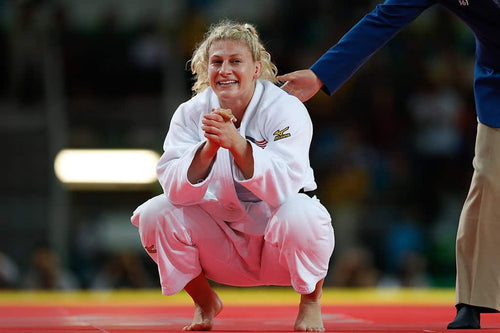
Kayla Harrison's Judo Journey - Judo Champion Turned MMA Powerhouse
Kayla Harrison is a groundbreaking American judoka who made history by becoming the first American woman to win an Ol...
-

Judo Atlanta - List of Judo Clubs in Atlanta area
In Atlanta, you can find excellent judo clubs such as Atlanta Judo Midtown and Black Ice Fitness where you can train...
-
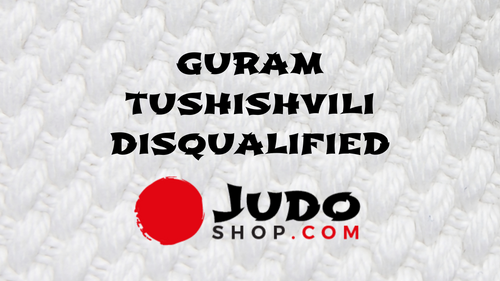
Guram Tushishvili Disqualified - JUDO DRAMA with Teddy Riner
Guram Tushishvili Disqualified - Unsportsmanlike Behavior to French Judoka Teddy Riner Leads to Disqualification fro...
-

Yeldos Smetov - Judoka Profile
Yeldos Smetov, a name synonymous with excellence in judo, has carved out an illustrious career that stands as a beac...
-

Judo Olympics 2024 Results - Gold, Silver, and Bronze Medalists
The Judo Olympics 2024 Results are eagerly anticipated as the Paris Games approach, promising a thrilling display...
-
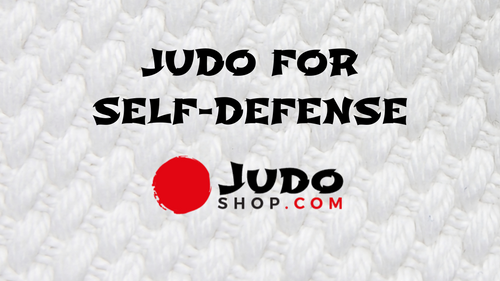
Judo For Self Defense - Here Is Why Is Judo Best For Self-Defense
Judo For Self Defense packs a punch. This martial art, born in Japan, turns attackers' strength against them. No nee...
-
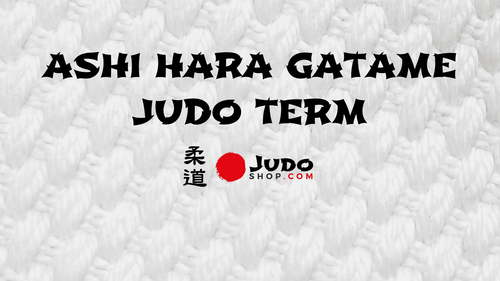
Ashi Hara Gatame - Judo Term Explained
Ashi Hara Gatame is a specialized technique in the martial art of judo, combining leg control, abdominal pressure, a...
-
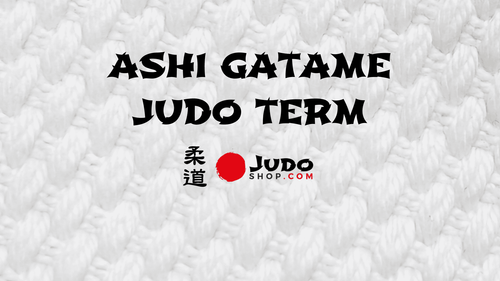
Ashi Gatame - Judo Term Explained
Ashi Gatame is a Judo technique referring to a kansetsu-waza (joint lock) where one uses their legs to immobilise ...
-
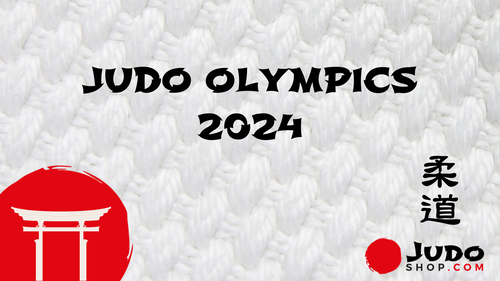
Judo Olympics 2024: Highlights, Athletes, and Schedules
Judo Olympics 2024 enthusiasts, mark your calendars! From July 27 to August 3, the Grand Palais Éphémère near the Eif...
-
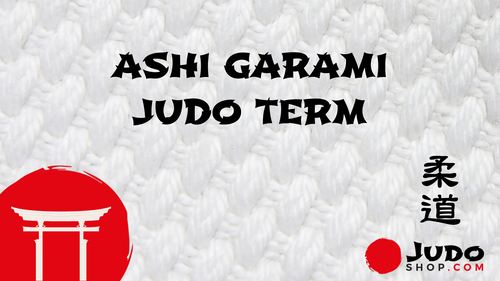
Ashi Garami - Judo Term Explained
What does "Ashi garami" mean in Judo? "Ashi garami" (足緘) is a Japanese term used in Judo that literally translates t...
-
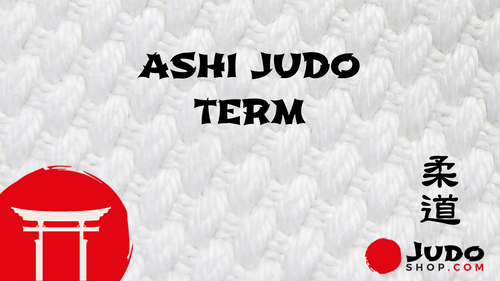
Ashi - Judo Term Explained
Ashi is term in Judo, referring to a leg or foot and category of judo techniques designed to unbalance and throw an ...
-
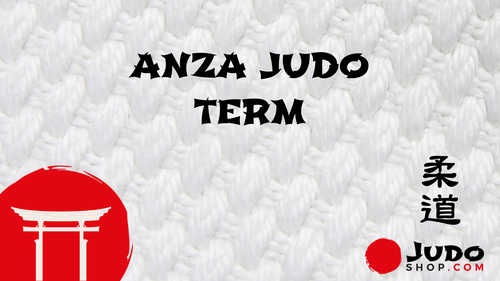
Anza - Judo Term Explained
The term Anza in Judo (安座) embodies a significant practice beyond merely sitting; it signals a deep respect and disc...
-
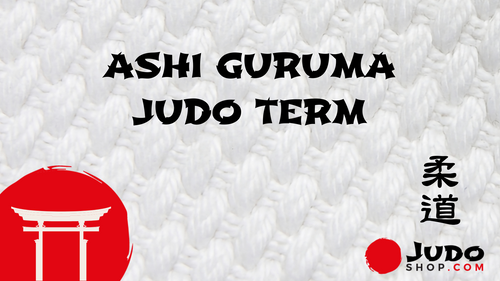
Ashi Guruma - Judo Term Explained
Ashi Guruma is a Judo term rooted in the martial art of Judo, which translates from Japanese as 'leg wheel'. This ju...
-
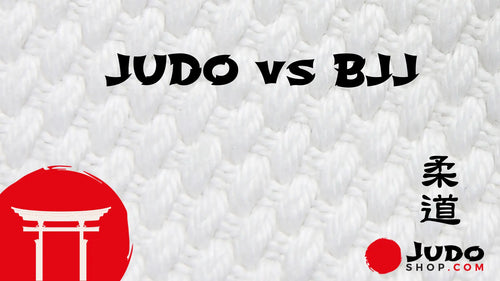
Judo vs BJJ? Of course Judo! Judo is better!
Welcome to Judoshop.com, the premier destination for judo enthusiasts worldwide. Here, we cater to beginners and vet...
-
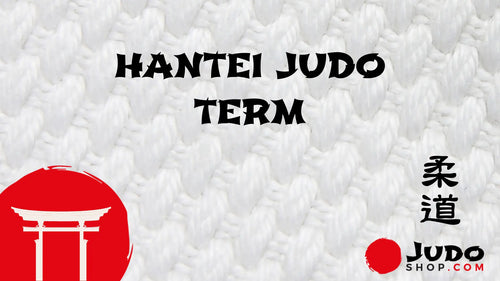
Hantei Judo Term Explanation
Contrary to popular belief, the term 'Hantei' in Judo is not just a simple decision-making process. It holds the p...
-
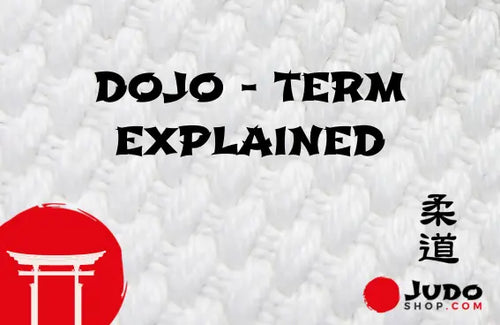
Dojo Meaning (updated 2023)
Dojos, places of immersive learning and meditation, hold great significance in martial arts. Derived from the Japane...
-
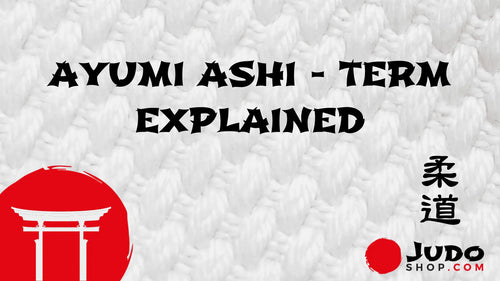
Ayumi Ashi - Judo Foot Work Explained
Are you ready to step into the world of Judo and master the art of Ayumi Ashi - 歩み足? This fundamental footwork techn...
-
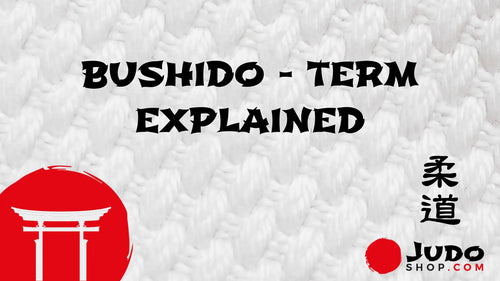
Bushido Explained
Bushido, the traditional code of ethics followed by samurai warriors in feudal Japan, is a subject that fascinates ...
-
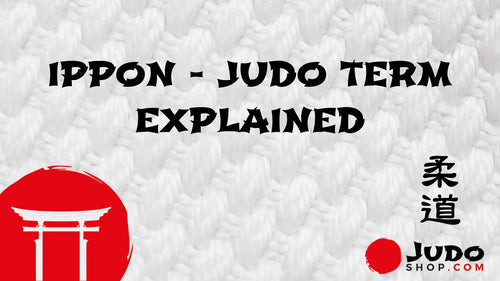
Ippon - Judo Term Explained
Imagine stepping onto the mat and feeling the adrenaline rush through your veins. In the world of judo, one ultimate...
-
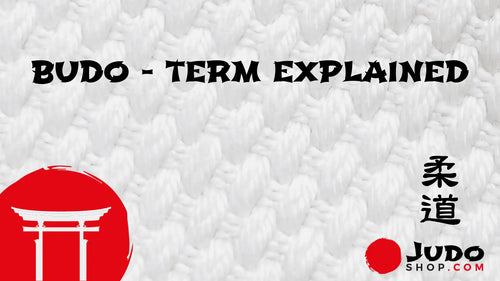
Budo - Term Explained
In a world full of chaos and conflict, one finds solace in the ancient art of budo. Contrary to popular belief, budo...
-
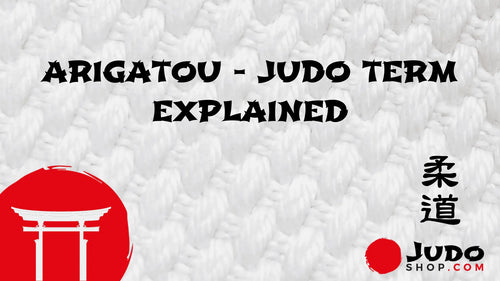
Arigatou - Judo Term Explained
Do you ever wonder about the true meaning behind the Japanese word 'Arigatou'? Well, wonder no more! 'Arigatou' is a...
-
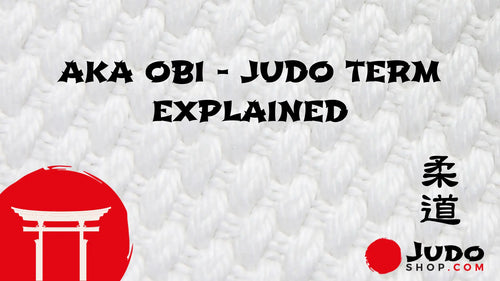
Aka Obi - Judo Term Explained
The aka obi, a red belt worn in Judo, is a prestigious symbol of expertise. Typically reserved for those holding a 9...
-
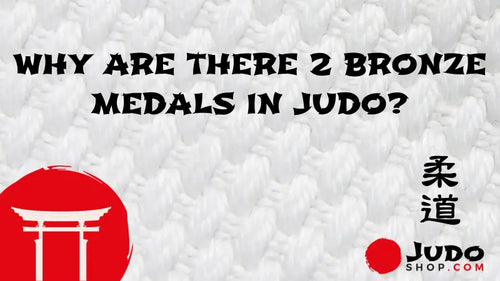
Why Are There 2 Bronze Medals In Judo
Judo is a unique sport that gives two bronze medals in each weight class. Many people wonder why this is done. To fi...
-
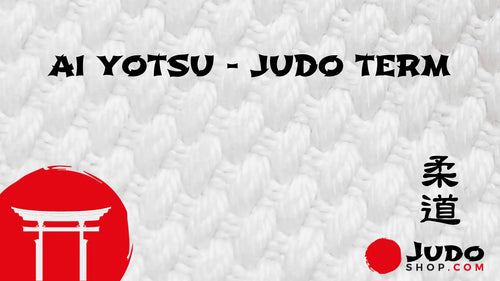
Ai Yotsu - Judo Term Explained
In the world of Judo, a term holds immense significance - Ai Yotsu. This grip, characterized by an intense and intim...
-
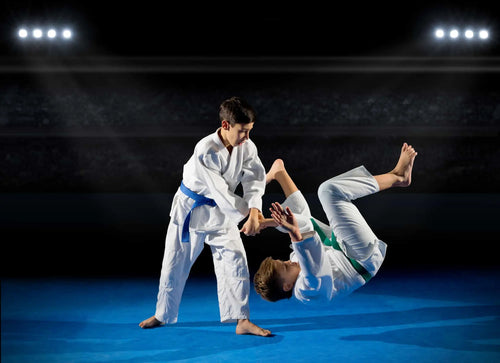
Is Judo Dangerous - Unveiling the Shocking Truths Behind this Ancient Martial Art
With its powerful throws and complex grappling techniques, one might wonder, "Is judo dangerous?" Yes, judo can po...
-

Is Judo The Toughest Sport - Unraveling the Grit and Grace of the Gentle Way
Judo, known as the Gentle Way, may seem like a paradoxical name for a sport, but don't let that fool you. While Ju...
-
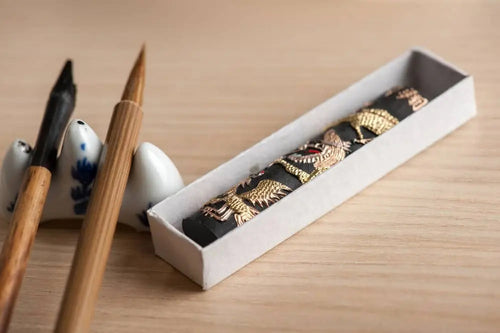
Judo Terms - Complete List Of Judo Terms
Judo terms are the foundation of this martial art...
-

English to Japanese Kanji and Hiragana translations
Are you looking for an English to Japanese Kanji translation? Here you can find more than 30 examples of Kanji and ...




























